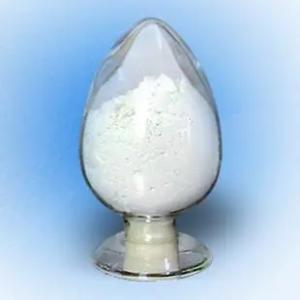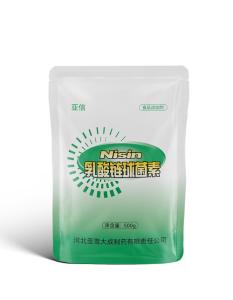

|
- Createtime: 2023-03-24
- Updatetime: 2024-10-15
Colistin sulfate (also known as colimycin sulfate, colistin sulfate, Klebisin, polymyxin E, etc.) has the following notable characteristics:
I. Physical and Chemical Properties
·Appearance: The pure product is a white or off-white powder, while the premix appears as light brown or brown granules or powder.
·Solubility: It is easily soluble in water but poorly soluble in ether, acetone, or chloroform, and slightly soluble in methanol and ethanol.
·Stability: It is stable within a pH range of 3 to 7.5, with the best stability in solutions where the pH does not exceed 7.5, ensuring consistent efficacy. However, it is unstable in highly alkaline solutions.
·Heat Resistance: Colistin sulfate has good heat resistance.
II. Pharmacological Action
·Antibacterial Spectrum: Colistin sulfate is a basic polypeptide antibiotic with strong inhibitory effects on Gram-negative bacteria, especially Escherichia coli, Salmonella, Pseudomonas aeruginosa, and Haemophilus. It is a narrow-spectrum antibiotic, with no effect on Gram-positive bacteria (except Staphylococcus aureus and Streptococcus pyogenes) or fungi.
·Mechanism of Action: Colistin sulfate binds to the free phosphates of lipoproteins in the cell membrane, reducing surface tension and increasing membrane permeability, leading to cytoplasmic leakage and bacterial cell death.
III. Pharmacokinetics
·Absorption: Colistin sulfate is poorly absorbed when administered orally. However, in cases of intestinal diseases like enteritis or endotoxemia, where the intestinal mucosa is damaged and permeability is increased, up to 10% of the colistin sulfate may be passively absorbed into the body.
·Distribution: After injection, colistin sulfate is widely distributed in the body, reaching peak concentrations in major tissues within 0.5 to 1 hour. However, it has limited penetration into the pleural cavity, joint spaces, and sites of infection, and it does not easily cross into the cerebrospinal fluid.
·Excretion: Colistin sulfate is rapidly excreted, primarily via the kidneys.
IV. Safety and Resistance
·Safety: Colistin sulfate has low toxicity and no notable side effects, making it relatively safe for use in veterinary medicine.
·Resistance: Colistin sulfate has a low tendency to induce resistant strains, and cross-resistance with other antibiotics is rare.
V. Applications and Combinations
·Application Scope: It is primarily used to prevent and treat infections caused by sensitive bacteria and to promote growth in livestock and poultry.
·Synergistic Combinations: Colistin sulfate can be combined with a variety of drugs, such as sulfonamides, rifampin, penicillin, ampicillin sodium, TMP antibacterial synergists, tetracyclines, quinolones, florfenicol, neomycin sulfate, dimetridazole, among others, to enhance therapeutic effects through synergy.
Colistin sulfate has unique physical and chemical properties, pharmacological action, pharmacokinetics, as well as favorable safety and resistance characteristics. In veterinary medicine, it is widely used to treat gastrointestinal and respiratory infections in animals and is often combined with other drugs to improve efficacy.
-
2023-03-13
How is Nisin produced?
Nisin is a naturally occurring antimicrobial peptide that is produced by certain strains of bacteria, particularly Lactococcus lactis. The process of nisin production involves the ...
MORE -
2023-03-14
How is ε-Polylysine hydrochloride produced?
ε-Polylysine hydrochloride, also known as ε-PL or Poly(ε-lysine), is a natural biopolymer composed of ε-lysine monomers. ε-PL is known for its antimicrobial properties and has...
MORE
- Tel:+8618231198596
- Whatsapp:18231198596
- Chat With Skype







